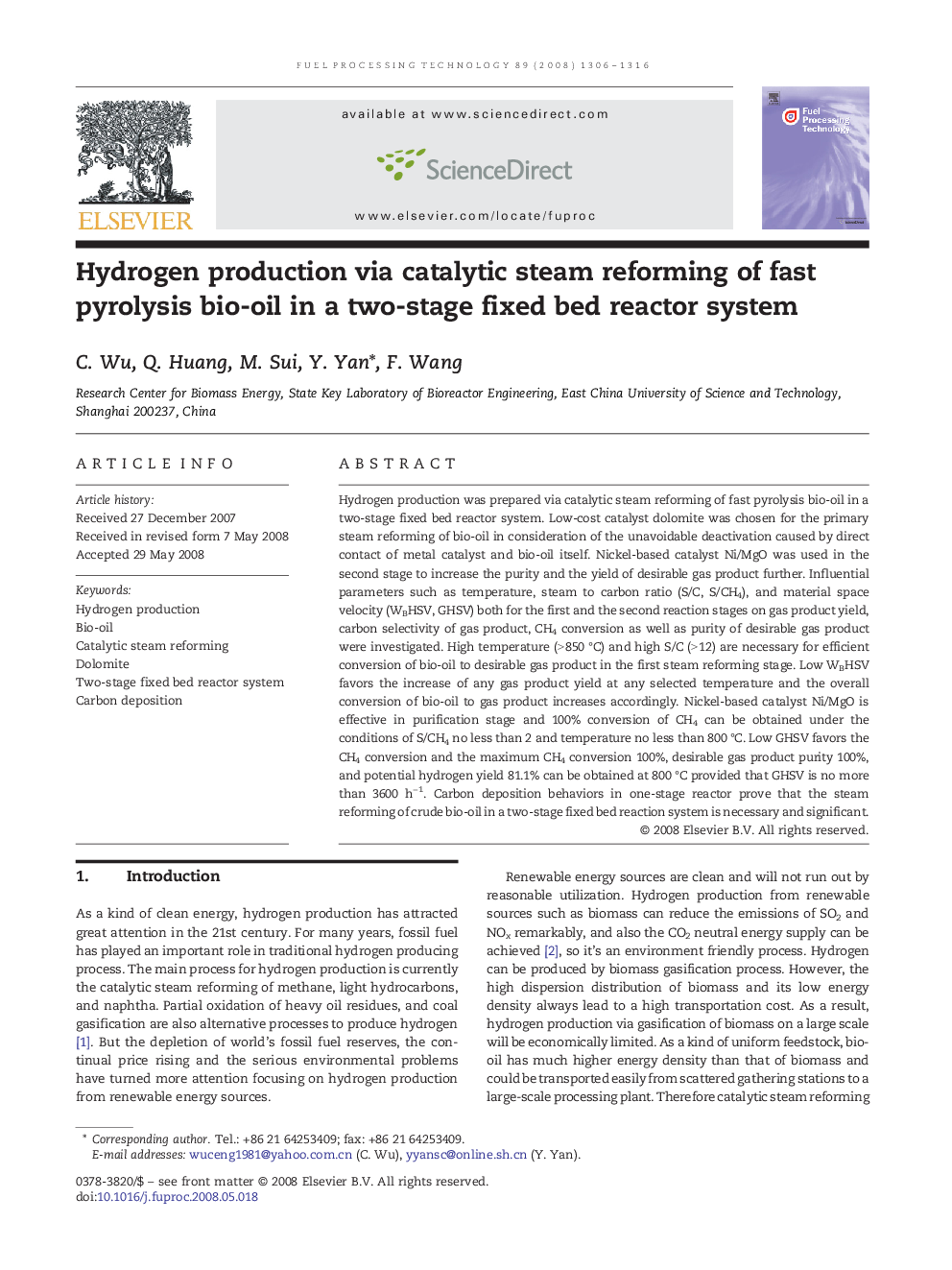| Article ID | Journal | Published Year | Pages | File Type |
|---|---|---|---|---|
| 211074 | Fuel Processing Technology | 2008 | 11 Pages |
Hydrogen production was prepared via catalytic steam reforming of fast pyrolysis bio-oil in a two-stage fixed bed reactor system. Low-cost catalyst dolomite was chosen for the primary steam reforming of bio-oil in consideration of the unavoidable deactivation caused by direct contact of metal catalyst and bio-oil itself. Nickel-based catalyst Ni/MgO was used in the second stage to increase the purity and the yield of desirable gas product further. Influential parameters such as temperature, steam to carbon ratio (S/C, S/CH4), and material space velocity (WBHSV, GHSV) both for the first and the second reaction stages on gas product yield, carbon selectivity of gas product, CH4 conversion as well as purity of desirable gas product were investigated. High temperature (> 850 °C) and high S/C (> 12) are necessary for efficient conversion of bio-oil to desirable gas product in the first steam reforming stage. Low WBHSV favors the increase of any gas product yield at any selected temperature and the overall conversion of bio-oil to gas product increases accordingly. Nickel-based catalyst Ni/MgO is effective in purification stage and 100% conversion of CH4 can be obtained under the conditions of S/CH4 no less than 2 and temperature no less than 800 °C. Low GHSV favors the CH4 conversion and the maximum CH4 conversion 100%, desirable gas product purity 100%, and potential hydrogen yield 81.1% can be obtained at 800 °C provided that GHSV is no more than 3600 h− 1. Carbon deposition behaviors in one-stage reactor prove that the steam reforming of crude bio-oil in a two-stage fixed bed reaction system is necessary and significant.
